NDP shapes leadership race as cracks form between HQ and grassroots members
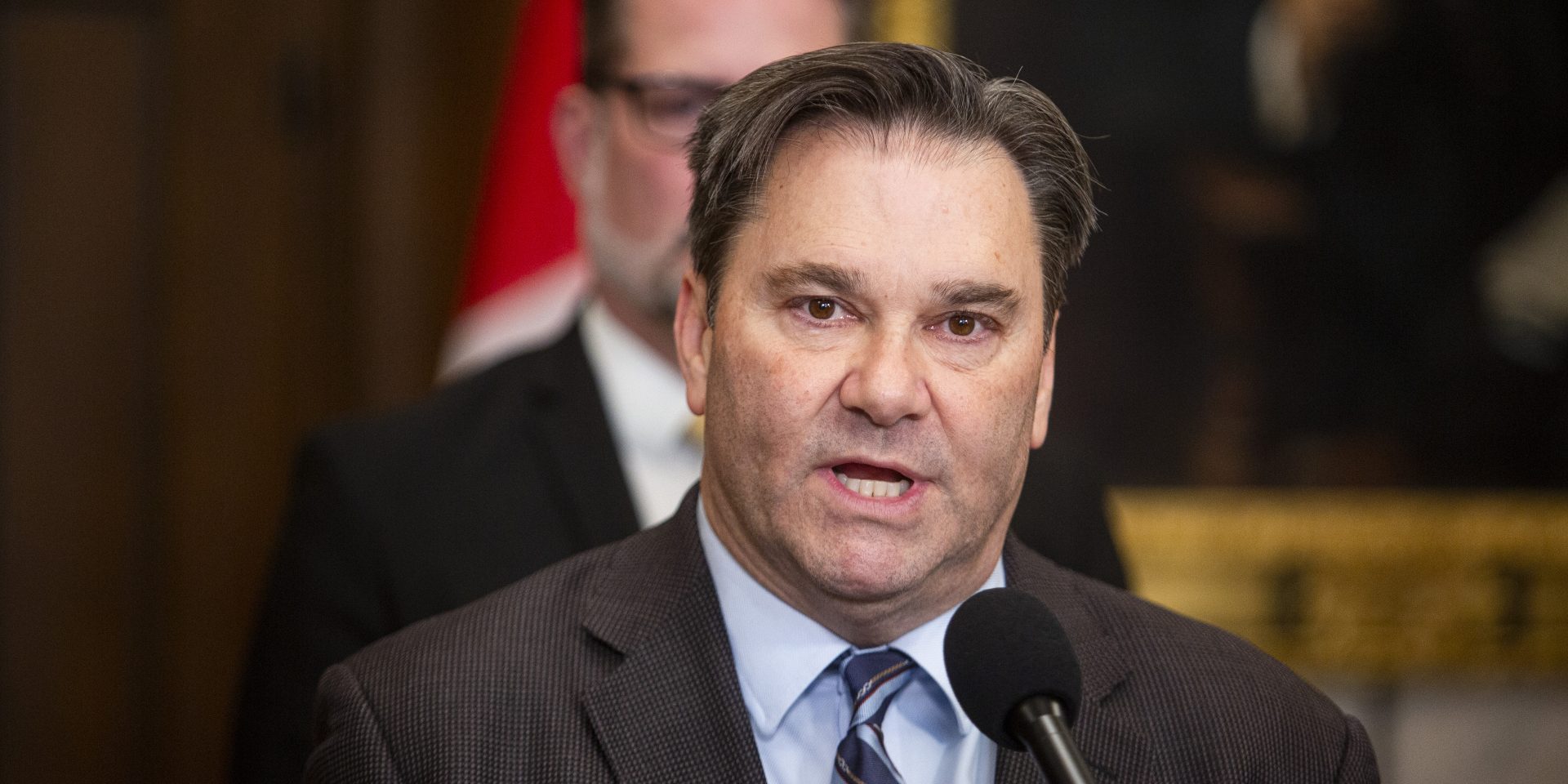
A pitch for New Democrats to divert their donations away from the federal party and instead to local riding associations is drawing mixed support, with some calling it “misguided” and others welcoming a shift away from a “top-down” approach that contributed to the party’s worst electoral outcome.
The new group—called Reclaim Canada’s NDP—said party management is not listening to “boots on the ground,” and it’s time to empower local riding associations. The group is aiming to divert five to 10 per cent of funds to “send upper management a message.”
That push came before the NDP national council’s July 10 announcement of a $100,000 entry fee for a race that begins in September 2025 and ends “no later than” March 29, 2026. That’s well above Reclaim’s recommended $50,000, or the $30,000 set in 2017, when Jagmeet Singh ran and won leadership.
“We are disappointed, but it’s important to know that this could have been $150,000… It could have been way worse,” said Keith de Silvia-Legault, co-organizer of Reclaim, which was founded by electoral district associations (EDAs), former MPs, candidates, staff, and volunteers. While he said he considered the six-month runway “a big victory,” he also said the group plans to “keep that pressure on.”
The group is among NDP members debating party renewal and a review of the 2025 campaign, which saw the NDP lose two-thirds of its seats in the House, including the riding held by Singh. On July 8, the party announced a “review and renewal” process facilitated by former Ottawa NDP candidate Emilie Taman.
“We know that if the folks in charge aren’t listening, we, as a united front, need to be so loud that the upper management can’t help but listen,” said de Silvia-Legault. “There needs to be more pressure, and we’re hoping to apply that pressure.”
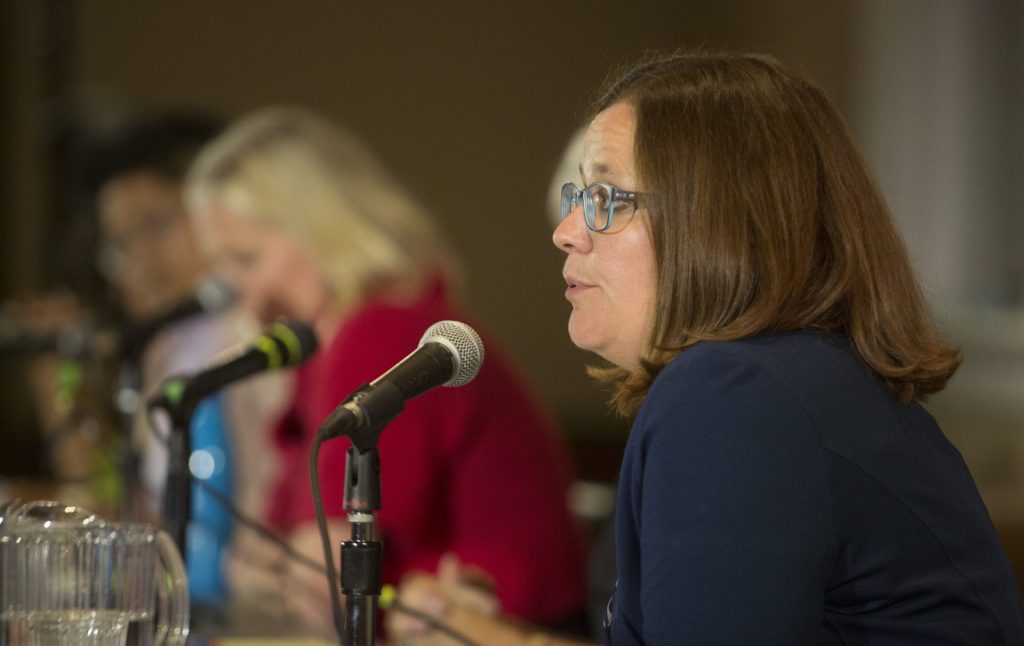
But not all are convinced by the group’s approach. Former NDP MP Matthew Dubé said he doesn’t think the “appearance of conflict” is “helpful” to party-rebuilding efforts.
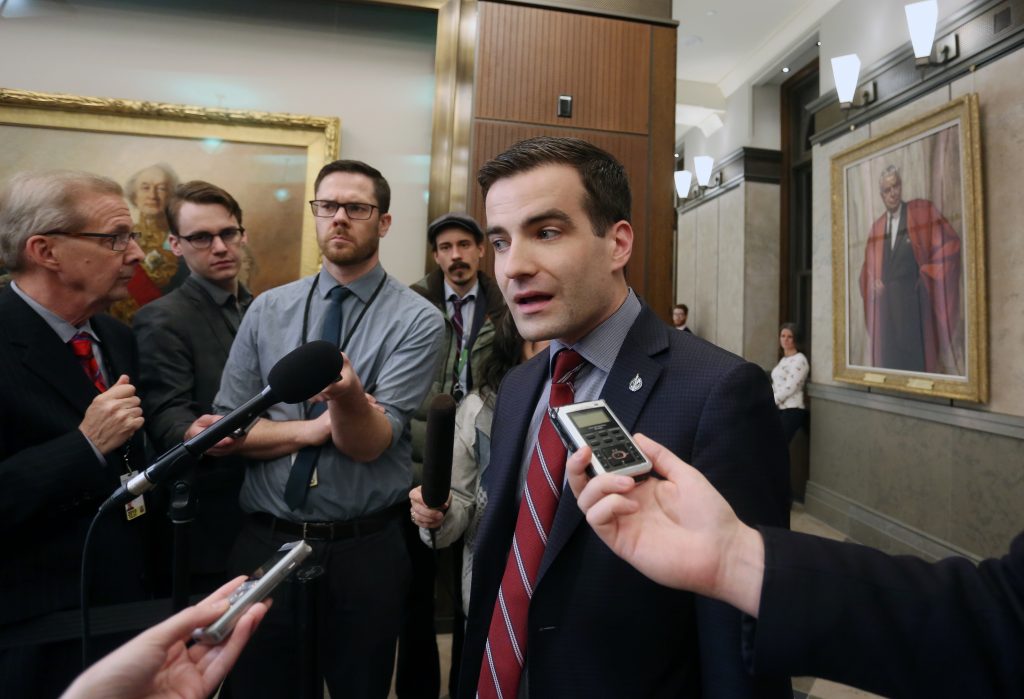
“I don’t think that it makes sense to see riding associations and the party as being in opposition,” the former Quebec MP said. “It just seems to be more driven by negativity and this need to find some kind of conflict.”
Dubé also said it’s the wrong approach to be “disparaging towards hard-working staff,” many of whom lost their jobs post-election. He added that many working for the central party, who are or were grassroots activists themselves, “believe in the issues and the politics just as much as the grassroots activists,” calling the push to divert funds “misguided.”
“Strong local riding associations are well connected in their communities, and should have the capacity to raise money from their local supporters,” he said. “It’s what I did as a candidate and MP, and I know that’s what many others have done as well.”
Some EDAs ‘mulling over’ Reclaim’s proposal
Support on the proposal at the local level is mixed. Heather Zaleski, president of the NDP’s riding association in Windsor West, Ont., said she’s “not sure” if she supports the idea, and is still “mulling over” the potential impact. The riding was represented by former NDP MP Brain Masse for 23 years, before he was unseated by rookie Conservative MP Harb Gill in the April election.
Zaleski acknowledged there are “some pros,” noting that more money and engagement on the local level would allow riding associations to “tailor” their “advertising or events.”
“I do think a lot of time these big political parties, they’re based in Ottawa … where I’m from, we have totally different problems,” she said. “Sometimes when you get it top-down, it’s kind of generic, and a lot of the times it doesn’t work here.”
But Zaleski said she worries that it could lead to people “never” donating to the central party, which she doesn’t think is a good thing, either.
Michelle Scebenski, NDP riding association president in Elmwood—Transcona, Man., said she’s waiting on feedback from members before commenting. She said she “didn’t think there would be a lot of resistance” to diverting some funds to the riding, a historically strong orange seat previously represented by Leila Dance and Daniel Blaikie before the Conservatives took it in April.
While the association has sometimes struggled with resources, Scebenski said it “doesn’t mean” running campaigns “isn’t doable” and that, in her riding, there is a lot of grassroots engagement.
Other EDAs are onboard. Marie-Pierre Guerin, president of the NDP Lanark—Frontenac, Ont. riding association said she found there to be “no communication” from the party in the recent election. The riding, located southwest of Ottawa, is represented by nine-time Conservative MP Scott Reid. Guerin said she was stuck running a campaign with $3,000 and six volunteers.
“As a riding association, our phone calls were not answered. Our emails were not answered,” she said. “There was a black hole between the grassroots people, the grassroots movement.”
Guerin, who supports Reclaim Canada’s NDP, said “leadership has not listened to anyone in two years,” and suggested NDP donors will be on the hook for the loan she said the party took out to finance the campaign.
Due to many candidates failing to meet the 10-per-cent vote share threshold for a partial reimbursement of their campaign expenses, the party has lost significant cash that could have been used to repay some of the loan.
Adam Frank, who ran for the NDP in the Montreal riding of Mount Royal, agreed that upper management is out of touch with the grassroots.
“The candidate is starting from zero. You’ve got no funds,” he said, explaining he had to pay for his own campaign materials.
Debate underway over leadership race rules
In announcing the rules, NDP National President Lucy Watson noted the entry fee is much lower than other parties, and said additional rules would be published prior to the race’s start in September.
“I look forward to the dynamic exchange between candidates and members about the future of our party and how we will continue to deliver relief for working Canadians,” she said in the statement, which also announced the convention would be held in Winnipeg, Man.
The topic of leadership has already caused a stir within the party. A month ago, following the appointment of Don Davies (Vancouver Kingsway, B.C.) as interim leader, a leaked letter from three NDP MPs—Leah Gazan (Winnipeg Centre, Man.), Lori Idlout (Nunavut), and Jenny Kwan (Vancouver East, B.C.)—revealed some frustration. In their note to the executive and council, the MPs said they were not properly consulted on the matter. The trio has since come out in support of Davies, saying it was the process—not Davies—which concerned them.
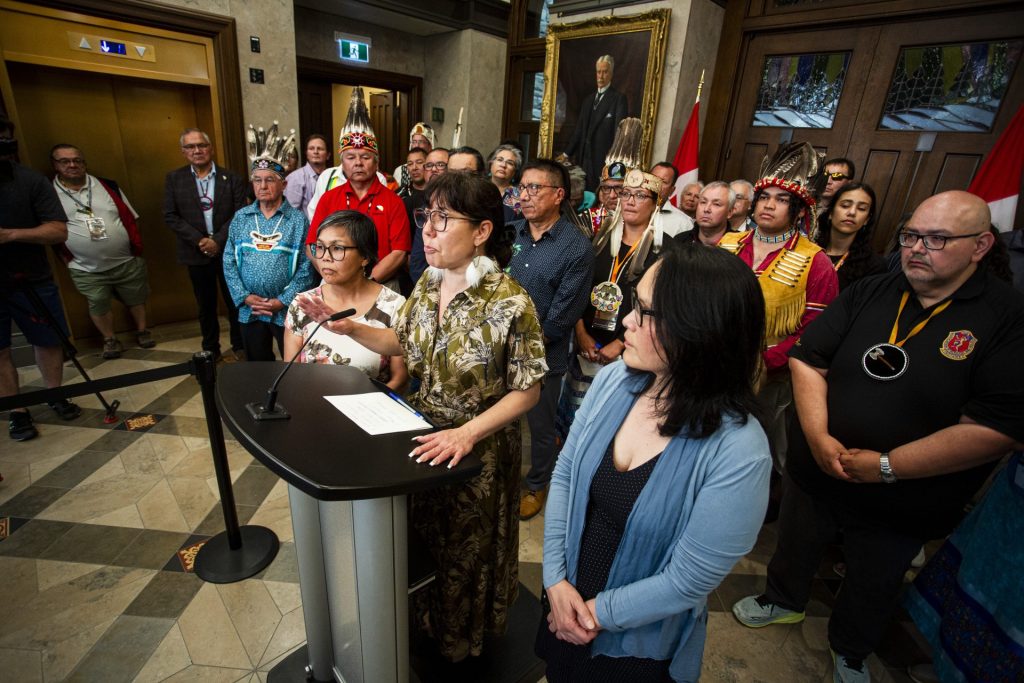
But since then, other leaked emails have surfaced indicating that some party executives were pushing for higher entrance fees and a shorter race timeline, leading to infighting and resignations, according to Canada’s National Observer, as some believe the party is setting up the race to favour certain candidates.
Dubé, speaking before the rules were set, said he thinks there “needs to be some barrier of entry” for leadership hopefuls.
“I don’t think just anyone should be running for leader,” he said. “We need qualified individuals. … But I also agree with the sentiment that it shouldn’t be prohibitively high.”
NDP MP Heather McPherson (Edmonton Strathcona, Alta.) offered a similar assessment. McPherson told The Hill Times she’s “seriously considering” running for leadership, and noted there is a “balance” when it comes to entrance fees.
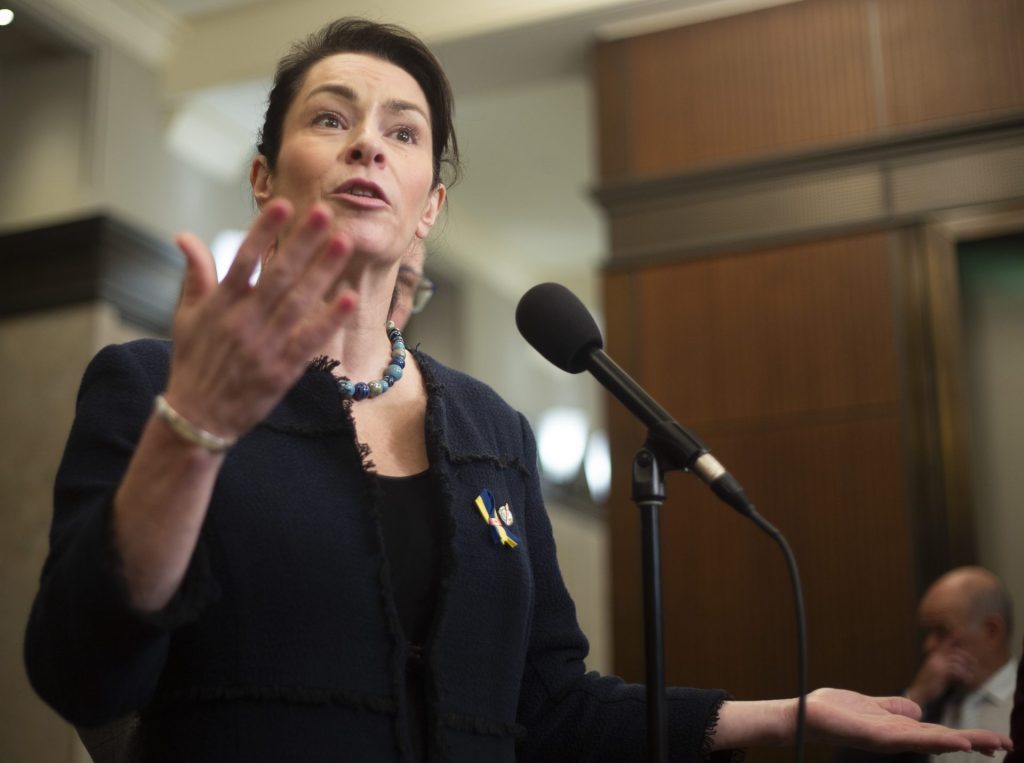
“You want to have a fee to enter that is accessible,” she said in a July 5 interview. “But you also want to ensure that, frankly, … whoever is selected as a leader has the capacity to raise money. That’s a key role.”
NDP launches election post-mortem
Part of Taman’s review is expected to include “guided discussions” with “local campaign teams.”
Zaleski said she hopes the campaign review will lead to “some major changes,” and a less “top-down” approach that includes more local voices. The party is at “a great turning point,” said Zaleski, who is “optimistic” New Democrats can “rebuild with regular people in our working class.”
“We should be able to, from each riding, have an opinion, have a voice, and work cohesively to try to build a better movement,” Zaleski said. “We’re a poor party of the workers … We’re a party of regular folks, and we want to make sure we capture that we’re not an elite party.”
De Silvia-Legault said Reclaim Canada’s NDP would be “very, very happy” to participate in the review and renewal process, but noted “it’s important to remember” that following the 2021 campaign debrief—which he said was “good” and “assessed all of the issues”—sufficient action wasn’t taken.
“The report came back saying that the 2021 platform lacks substance and was too focused on the leader, rather than ideas,” de Silvia-Legault recalled. “In 2025, the party upper management proceeded to make the same mistakes as last time. And this time, it costed 17 seats.”
The 2021 debrief pointed out that the NDP lacked a ballot-box question, which meant “local campaigns struggled to compel voters.” It also recommended the party “adopt a regional model for campaigns” and improve at “differentiating” from “other parties.”
But de Silvia-Legault said one of the party’s failures in the 2025 campaign was still being “too leadership centric.”
“The upper management of the party relied very heavily on, like, a cult of personality, and that’s something that … didn’t work for us in the last election,” de Silvia-Legault said. “It didn’t work in 2021. Something else needs to be tried. We’re beating the same horse.”
ewand@hilltimes.com
The Hill Times






 LICENSING
LICENSING PODCAST
PODCAST ALERTS
ALERTS













